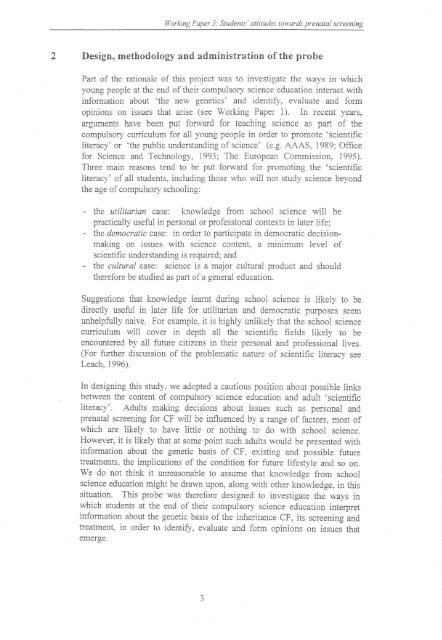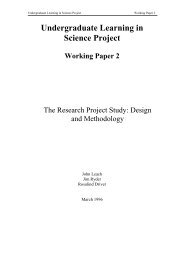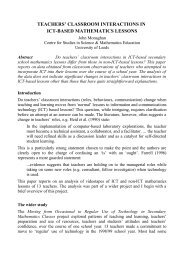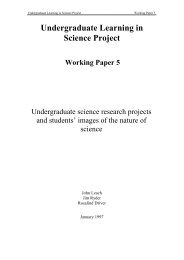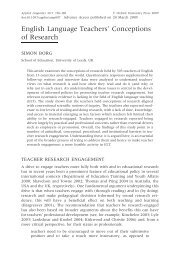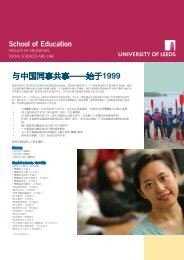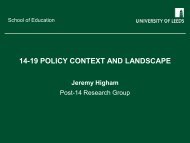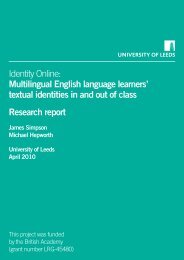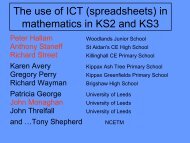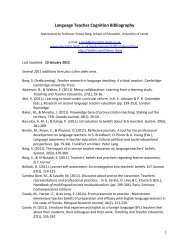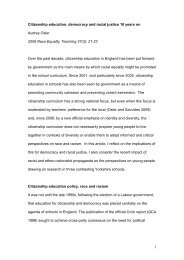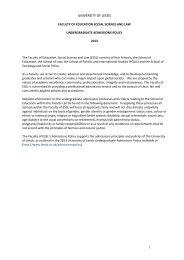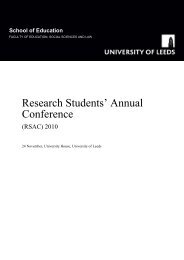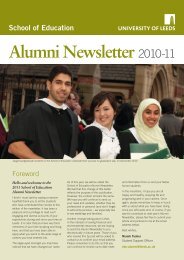Opinions On And Attitudes Towards Genetic Screening - School of ...
Opinions On And Attitudes Towards Genetic Screening - School of ...
Opinions On And Attitudes Towards Genetic Screening - School of ...
- No tags were found...
Create successful ePaper yourself
Turn your PDF publications into a flip-book with our unique Google optimized e-Paper software.
Working Paper 5: Students' attitudes towards prenatal screening2 Design, methodology and administration <strong>of</strong> the probePart <strong>of</strong> the rationale <strong>of</strong> this project was to investigate the ways in whichyoung people at the end <strong>of</strong> their compulsory science education interact withinformation about 'the new genetics' and identify, evaluate and formopinions on issues that arise (see Working Paper 1). In recent years,arguments have been put forward for teaching science as part <strong>of</strong> thecompulsory curriculum for all young people in order to promote 'scientificliteracy' or 'the public understanding <strong>of</strong> science' (e.g. AAAS, 1989; Officefor Science and Technology, 1993; The European Commission, 1995).Three main reasons tend to be put forward for promoting the 'scientificliteracy' <strong>of</strong> all students, including those who will not study science beyondthe age <strong>of</strong>compulsory schooling:- the utilitarian case: knowledge from school science will bepractically useful in personal or pr<strong>of</strong>essional contexts in later life;- the democratic case: in order to participate in democratic decisionmakingon issues with science content, a minimum level <strong>of</strong>scientific understanding is required; and- the cultural case: science is a major cultural product and shouldtherefore be studied as part <strong>of</strong>a general education.Suggestions that knowledge learnt during school science is likely to bedirectly useful in later life for utilitarian and democratic purposes seemunhelpfully naive. For example, it is highly unlikely that the school sciencecurriculum will cover in depth all the scientific fields likely to beencountered by all future citizens in their personal and pr<strong>of</strong>essional lives.(For further discussion <strong>of</strong> the problematic nature <strong>of</strong> scientific literacy seeLeach, 1996).In designing this study, we adopted a cautious position about possible linksbetween the content <strong>of</strong> compulsory science education and adult 'scientificliteracy'. Adults making decisions about issues such as personal andprenatal screening for CF will be influenced by a range <strong>of</strong> factors, most <strong>of</strong>which are likely to have little or nothing to do with school science.However, it is likely that at some point such adults would be presented withinformation about the genetic basis <strong>of</strong> CF, existing and possible futuretreatments, the implications <strong>of</strong> the condition for future lifestyle and so on.We do not think it unreasonable to assume that knowledge from schoolscience education might be drawn upon, along with other knowledge, in thissituation. This probe was therefore designed to investigate the ways inwhich students at the end <strong>of</strong> their compulsory science education interpretinformation about the genetic basis <strong>of</strong> the inheritance CF, its screening andtreatment, in order to identify, evaluate and form opinions on issues thatemerge.


